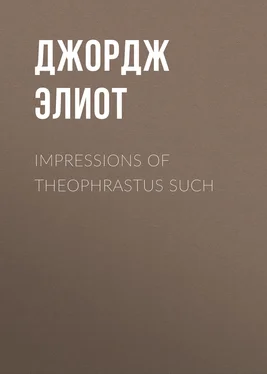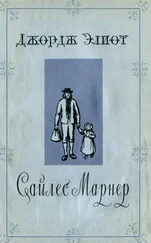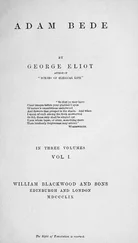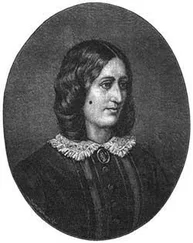Джордж Элиот - Impressions of Theophrastus Such
Здесь есть возможность читать онлайн «Джордж Элиот - Impressions of Theophrastus Such» — ознакомительный отрывок электронной книги совершенно бесплатно, а после прочтения отрывка купить полную версию. В некоторых случаях можно слушать аудио, скачать через торрент в формате fb2 и присутствует краткое содержание. Жанр: Биографии и Мемуары, literature_19, foreign_antique, на английском языке. Описание произведения, (предисловие) а так же отзывы посетителей доступны на портале библиотеки ЛибКат.
- Название:Impressions of Theophrastus Such
- Автор:
- Жанр:
- Год:неизвестен
- ISBN:нет данных
- Рейтинг книги:4 / 5. Голосов: 1
-
Избранное:Добавить в избранное
- Отзывы:
-
Ваша оценка:
- 80
- 1
- 2
- 3
- 4
- 5
Impressions of Theophrastus Such: краткое содержание, описание и аннотация
Предлагаем к чтению аннотацию, описание, краткое содержание или предисловие (зависит от того, что написал сам автор книги «Impressions of Theophrastus Such»). Если вы не нашли необходимую информацию о книге — напишите в комментариях, мы постараемся отыскать её.
Impressions of Theophrastus Such — читать онлайн ознакомительный отрывок
Ниже представлен текст книги, разбитый по страницам. Система сохранения места последней прочитанной страницы, позволяет с удобством читать онлайн бесплатно книгу «Impressions of Theophrastus Such», без необходимости каждый раз заново искать на чём Вы остановились. Поставьте закладку, и сможете в любой момент перейти на страницу, на которой закончили чтение.
Интервал:
Закладка:
George Eliot
Impressions of Theophrastus Such
"Suspicione si quis errabit sua,
Et rapiet ad se, quod erit commune omnium,
Stulte nudabit animi conscientiam
Huic excusatum me velim nihilominus
Neque enim notare singulos mens est mihi,
Verum ipsam vitam et mores hominum ostendere"
I.
LOOKING INWARD
It is my habit to give an account to myself of the characters I meet with: can I give any true account of my own? I am a bachelor, without domestic distractions of any sort, and have all my life been an attentive companion to myself, flattering my nature agreeably on plausible occasions, reviling it rather bitterly when it mortified me, and in general remembering its doings and sufferings with a tenacity which is too apt to raise surprise if not disgust at the careless inaccuracy of my acquaintances, who impute to me opinions I never held, express their desire to convert me to my favourite ideas, forget whether I have ever been to the East, and are capable of being three several times astonished at my never having told them before of my accident in the Alps, causing me the nervous shock which has ever since notably diminished my digestive powers. Surely I ought to know myself better than these indifferent outsiders can know me; nay, better even than my intimate friends, to whom I have never breathed those items of my inward experience which have chiefly shaped my life.
Yet I have often been forced into the reflection that even the acquaintances who are as forgetful of my biography and tenets as they would be if I were a dead philosopher, are probably aware of certain points in me which may not be included in my most active suspicion. We sing an exquisite passage out of tune and innocently repeat it for the greater pleasure of our hearers. Who can be aware of what his foreign accent is in the ears of a native? And how can a man be conscious of that dull perception which causes him to mistake altogether what will make him agreeable to a particular woman, and to persevere eagerly in a behaviour which she is privately recording against him? I have had some confidences from my female friends as to their opinion of other men whom I have observed trying to make themselves amiable, and it has occurred to me that though I can hardly be so blundering as Lippus and the rest of those mistaken candidates for favour whom I have seen ruining their chance by a too elaborate personal canvass, I must still come under the common fatality of mankind and share the liability to be absurd without knowing that I am absurd. It is in the nature of foolish reasoning to seem good to the foolish reasoner. Hence with all possible study of myself, with all possible effort to escape from the pitiable illusion which makes men laugh, shriek, or curl the lip at Folly's likeness, in total unconsciousness that it resembles themselves, I am obliged to recognise that while there are secrets in me unguessed by others, these others have certain items of knowledge about the extent of my powers and the figure I make with them, which in turn are secrets unguessed by me. When I was a lad I danced a hornpipe with arduous scrupulosity, and while suffering pangs of pallid shyness was yet proud of my superiority as a dancing pupil, imagining for myself a high place in the estimation of beholders; but I can now picture the amusement they had in the incongruity of my solemn face and ridiculous legs. What sort of hornpipe am I dancing now?
Thus if I laugh at you, O fellow-men! if I trace with curious interest your labyrinthine self-delusions, note the inconsistencies in your zealous adhesions, and smile at your helpless endeavours in a rashly chosen part, it is not that I feel myself aloof from you: the more intimately I seem to discern your weaknesses, the stronger to me is the proof that I share them. How otherwise could I get the discernment?—for even what we are averse to, what we vow not to entertain, must have shaped or shadowed itself within us as a possibility before we can think of exorcising it. No man can know his brother simply as a spectator. Dear blunderers, I am one of you. I wince at the fact, but I am not ignorant of it, that I too am laughable on unsuspected occasions; nay, in the very tempest and whirlwind of my anger, I include myself under my own indignation. If the human race has a bad reputation, I perceive that I cannot escape being compromised. And thus while I carry in myself the key to other men's experience, it is only by observing others that I can so far correct my self-ignorance as to arrive at the certainty that I am liable to commit myself unawares and to manifest some incompetency which I know no more of than the blind man knows of his image in the glass.
Is it then possible to describe oneself at once faithfully and fully? In all autobiography there is, nay, ought to be, an incompleteness which may have the effect of falsity. We are each of us bound to reticence by the piety we owe to those who have been nearest to us and have had a mingled influence over our lives; by the fellow-feeling which should restrain us from turning our volunteered and picked confessions into an act of accusation against others, who have no chance of vindicating themselves; and most of all by that reverence for the higher efforts of our common nature, which commands us to bury its lowest fatalities, its invincible remnants of the brute, its most agonising struggles with temptation, in unbroken silence. But the incompleteness which comes of self-ignorance may be compensated by self-betrayal. A man who is affected to tears in dwelling on the generosity of his own sentiments makes me aware of several things not included under those terms. Who has sinned more against those three duteous reticences than Jean Jacques? Yet half our impressions of his character come not from what he means to convey, but from what he unconsciously enables us to discern.
This naove veracity of self-presentation is attainable by the slenderest talent on the most trivial occasions. The least lucid and impressive of orators may be perfectly successful in showing us the weak points of his grammar. Hence I too may be so far like Jean Jacques as to communicate more than I am aware of. I am not indeed writing an autobiography, or pretending to give an unreserved description of myself, but only offering some slight confessions in an apologetic light, to indicate that if in my absence you dealt as freely with my unconscious weaknesses as I have dealt with the unconscious weaknesses of others, I should not feel myself warranted by common-sense in regarding your freedom of observation as an exceptional case of evil-speaking; or as malignant interpretation of a character which really offers no handle to just objection; or even as an unfair use for your amusement of disadvantages which, since they are mine, should be regarded with more than ordinary tenderness. Let me at least try to feel myself in the ranks with my fellow-men. It is true, that I would rather not hear either your well-founded ridicule or your judicious strictures. Though not averse to finding fault with myself, and conscious of deserving lashes, I like to keep the scourge in my own discriminating hand. I never felt myself sufficiently meritorious to like being hated as a proof of my superiority, or so thirsty for improvement as to desire that all my acquaintances should give me their candid opinion of me. I really do not want to learn from my enemies: I prefer having none to learn from. Instead of being glad when men use me despitefully, I wish they would behave better and find a more amiable occupation for their intervals of business. In brief, after a close intimacy with myself for a longer period than I choose to mention, I find within me a permanent longing for approbation, sympathy, and love.
Читать дальшеИнтервал:
Закладка:
Похожие книги на «Impressions of Theophrastus Such»
Представляем Вашему вниманию похожие книги на «Impressions of Theophrastus Such» списком для выбора. Мы отобрали схожую по названию и смыслу литературу в надежде предоставить читателям больше вариантов отыскать новые, интересные, ещё непрочитанные произведения.
Обсуждение, отзывы о книге «Impressions of Theophrastus Such» и просто собственные мнения читателей. Оставьте ваши комментарии, напишите, что Вы думаете о произведении, его смысле или главных героях. Укажите что конкретно понравилось, а что нет, и почему Вы так считаете.











